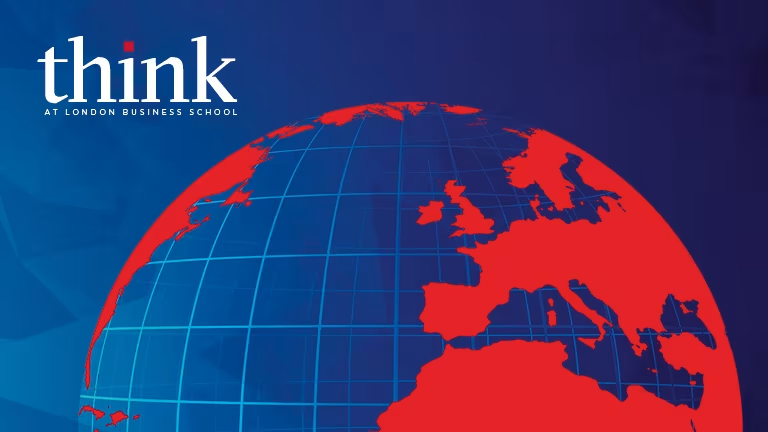
Discover fresh perspectives and research insights from LBS
Think at London Business School: fresh ideas and opinions from LBS faculty and other experts direct to your inbox
Sign upPlease enter a keyword and click the arrow to search the site
Or explore one of the areas below
The founders of BlaBlaCar were quick to spot the sharing economy trend and launch what looked like a risky startup.

It’s axiomatic in business these days that the winds of change are blowing ever harder, so the trick lies in spotting them before they become destructively gale force. BlaBlaCar, who was one of the winners in last years’ Real Innovation Awards, felt the sharing economy breeze picking up way back in 2003.
Unable to get a booking on a train home from Paris for Christmas that year, Frédéric Mazzella cadged a lift with his sister and was struck by how many empty seats there were in the cars around them. "I thought, OK, we’ll just put all those cars with empty seats in a search engine so that we can search the available seats in cars just like we search available seats on trains.”
He couldn’t get the idea out of his head and three years later, he and co-founders Nicolas Brusson and Francis Nappez launched CoVoiturage, a platform that would allow cash-strapped, socially minded millennials to share rides securely. “It was a prototype but it was unscalable,” he recalled. It took several iterations before they arrived at a viable proposition – and a new name that nobody could forget.
‘We couldn’t know for sure that it would work, of course, but we were confident in the concept,’ says Mazzella, now CEO. ‘There were billions of empty seats in cars all around the world, all costing drivers money in unused resources. At the same time, the rise of new technologies such as smartphones and search engines, along with the rise of social networks, meant it was perfect timing for ride-sharing to grow.’ Users who are drivers offering rides charge other users who want to be passengers by distance.
BlaBlaCar has raised almost $337m in funding so far. It helps to reduce congestion and emissions while providing its 30 million users in 22 countries with an affordable way to travel. In April 2015 BlaBlaCar acquired its biggest competitor, Carpooling.com, as well as Hungarian rival AutoHope.
When members create their user profiles they’re asked to indicate their in-car chattiness, from “Bla” (watches the scenery go by) through “BlaBla” (can be chatty) to “BlaBlaBla” (won’t keep quiet) – hence the company name. Drivers and passengers are matched for a pleasant journey. Women also have the option of choosing women drivers only.
Mazzella’s background in scientific research – he has studied physics, worked on a robotics project for NASA and holds a masters in computer science from Stanford – fed into his vision for BlaBlaCar. He imagined a new transport network built on people that could bring efficiency to road transport, solve congestion and make travel affordable, sociable and environmentally friendlier.
Jeff Skinner, Executive Director of the Institute of Innovation and Entrepreneurship at London Business School, says, “BlaBlaCar capitalised on a perfect storm of trends – ride sharing, sharing economy, geolocation, smartphones, increased travel, trust networks – and then executed superbly, building an intuitive, equitable business model and service that users loved. The lesson in this is, once you detect very strong tailwinds and traction, have the confidence to scale fast before others catch on.”
The Real Innovation Awards are run by the Institute for Innovation and Entrepreneurship at LBS

Think at London Business School: fresh ideas and opinions from LBS faculty and other experts direct to your inbox
Sign up